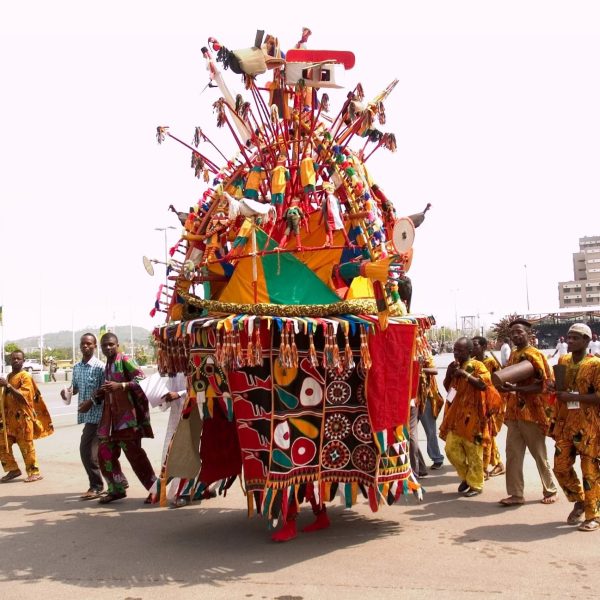#2
African Heritage
At SEVICS AFRICA, we passionately uphold our Environmental and Cultural Heritage as a program area for its profound impact. Preserving our identity, fostering social cohesion, and empowering future generations are paramount reasons.
By celebrating diversity and integrating tradition with innovation, we strive for sustainable development while cherishing our rich tapestry of interconnected stories.
Our commitment to cultural heritage embodies a bridge between the past and present, guiding us as we build a brighter future rooted in respect, inclusivity, and the wisdom of our ancestors.
You can play a part part in saving Africa’s Heritage in one of many ways. Sponsor our conservation,documentation or enlightenment efforts.
Strategy 1
Conservation
Preserve existing cultural realities of Africa that have survived and supporting the revival of festivals and cultural practices.
Strategy 2
Documentation
We document African narratives and cultures. The goal is to transition native culture from oral traditions to resource materials.
Strategy 3
Enlighten
Teach the truth about the African Heritage especially now that so much falsehoods are believed and disseminated about our origins.
#giveitback
This is an invitation to give something in support of our work. Return a piece of African Art that you suspect might have been illegally acquired. You can also suppport by giving some funds in support of our work.
Return an African Mask or Artefact!
Our Heritage, our pride
African heritage is an intricate tapestry woven from the diverse cultures, traditions, histories, and contributions of the continent’s peoples. It represents a rich and ancient legacy that spans thousands of years, encompassing a wide array of ethnic groups, languages, art forms, belief systems, and societal structures.
1. Cultural Diversity: Africa is home to a remarkable diversity of cultures and ethnicities. Each region and community holds unique customs, languages, music, dance, and culinary traditions, adding vibrant colors to the continent’s cultural landscape.
2. Ancient Civilizations: Africa boasts some of the world’s oldest civilizations, such as Ancient Egypt, Nubia, and the Kingdom of Kush, which left behind awe-inspiring architectural wonders like the pyramids and temples. These civilizations made significant contributions to mathematics, astronomy, medicine, and literature.
3. Art and Craftsmanship: African art is renowned for its beauty and diversity. Traditional art forms, including sculptures, masks, textiles, and pottery, often carry profound symbolic meanings and are deeply intertwined with cultural practices and rituals.
4. Oral Tradition: Africa’s rich oral tradition has been a primary means of passing down history, folklore, and wisdom through generations. Griots, storytellers, and bards play vital roles in preserving cultural heritage and passing on knowledge.
5. Music and Dance: Music and dance are integral to African heritage, serving as expressions of joy, sorrow, celebration, and ritual. The continent’s diverse musical genres, from drum rhythms to melodic tunes, have influenced global music in profound ways.
6. Spiritual and Religious Practices: Africa’s religious beliefs are as diverse as its cultures. Indigenous religions, Islam, Christianity, and others coexist, often blending elements to form unique syncretic practices that reflect the continent’s spiritual depth.
7. Contributions to Humanity: African heritage includes significant contributions to humanity’s progress. Notable achievements include the ironworking techniques of the Nok culture, the architectural brilliance of Great Zimbabwe, and the vast trading networks of empires like Mali and Ghana.
8. Resilience and Resistance: African heritage is a testament to the resilience and strength of its people. Despite facing centuries of challenges, including colonialism and slavery, African communities have preserved their identity and continue to resist oppression while striving for progress and equality.
9. Pan-Africanism: The concept of Pan-Africanism emerged from a desire to unite Africans and people of African descent worldwide. It emphasizes the importance of solidarity, self-determination, and the celebration of African heritage and achievements.
In conclusion, African heritage represents an intricate web of cultural, historical, and artistic riches that have shaped the continent and influenced the world. It stands as a testament to the creativity, resilience, and enduring spirit of Africa’s people, offering an endless source of inspiration and pride for generations to come. Embracing and honoring African heritage is vital in celebrating the continent’s unique contributions to global history and fostering a sense of unity and appreciation for the richness of human diversity.

